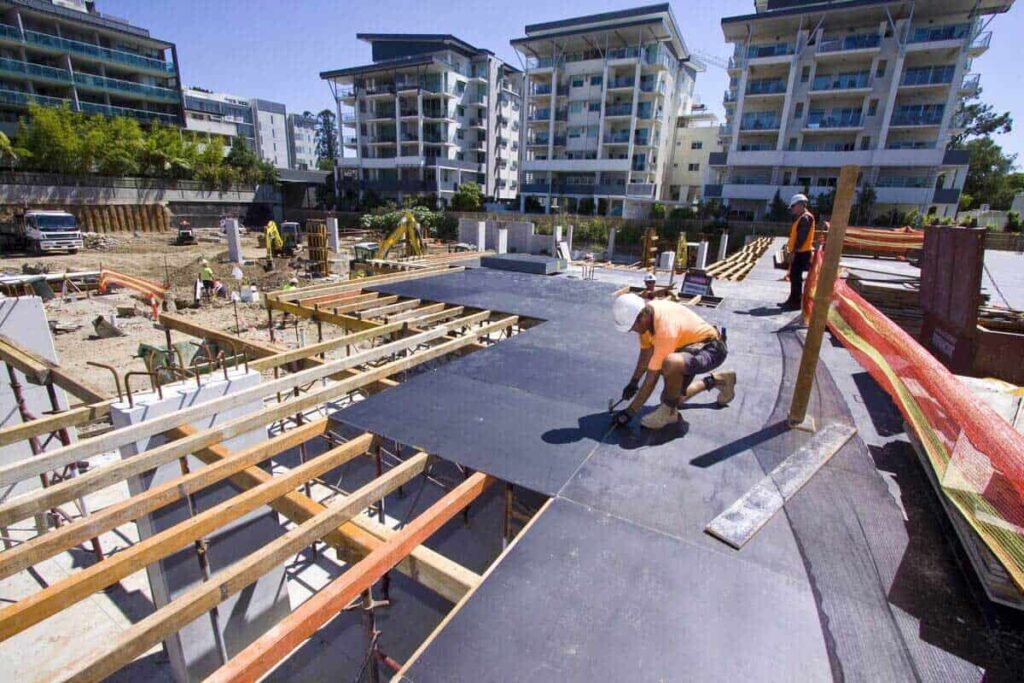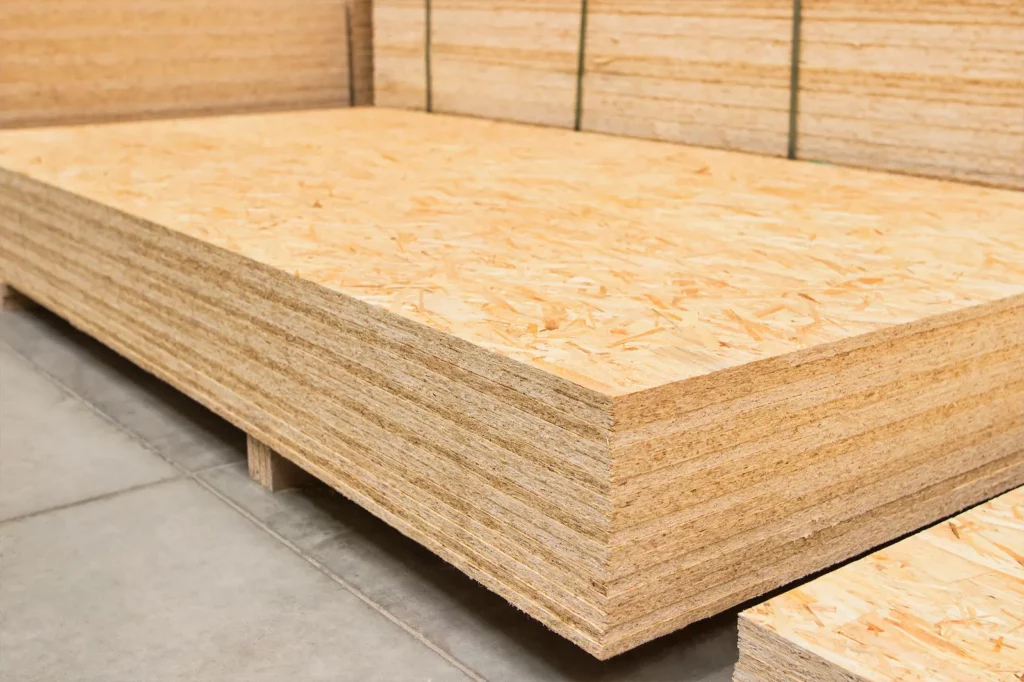Introduction to F14 Grade Plywood
F14 grade plywood is a high-quality engineered wood product that is widely used in construction, particularly for formwork applications. Formwork is a temporary structure used to support concrete until it hardens, and the choice of materials for this purpose can significantly impact the quality and durability of the finished product.
In recent years, F14 grade plywood has gained popularity among builders and contractors due to its numerous advantages. Understanding these benefits can help in making informed decisions when selecting materials for construction projects.
Furthermore, F14 grade plywood is known for its exceptional resistance to moisture and environmental factors. Unlike traditional plywood, which can warp or delaminate when exposed to wet conditions, F14 grade plywood is treated to enhance its durability. This makes it suitable for use in diverse climates and conditions, ensuring that construction projects can proceed without delays caused by material failure. The longevity of F14 grade plywood also contributes to cost-effectiveness, as it reduces the need for frequent replacements and repairs, ultimately leading to savings in both time and resources over the lifespan of a project.
Durability and Strength
One of the primary benefits of F14 grade plywood is its exceptional durability and strength. This plywood is manufactured using high-quality veneers that are bonded together with strong adhesives, resulting in a product that can withstand heavy loads and harsh environmental conditions. The meticulous selection of these veneers ensures that only the most resilient wood is used, contributing to the overall robustness of the plywood. This attention to detail in the manufacturing process not only enhances the physical properties of the plywood but also extends its lifespan, making it a cost-effective choice for various construction projects.
One of the standout features of F14 grade plywood is its impressive strength-to-weight ratio, which makes it an ideal choice for various structural applications. This plywood is manufactured using high-quality veneers that are bonded together with strong adhesives, resulting in a product that can withstand significant loads while remaining relatively lightweight. This characteristic not only facilitates easier handling and installation but also reduces the overall weight of the formwork, which can be particularly advantageous in projects with weight restrictions or those involving elevated structures.
F14 grade plywood is designed to resist warping, cracking, and splitting, ensuring that it maintains its structural integrity throughout the construction process. This durability is particularly important for formwork, as it must support the weight of wet concrete and withstand the pressure exerted during the curing process. Furthermore, the plywood’s resistance to environmental factors such as humidity and temperature fluctuations means that it remains reliable even in challenging conditions. This characteristic is especially beneficial for outdoor projects, where exposure to the elements can often compromise lower-grade materials.

Load-Bearing Capacity
The load-bearing capacity of F14 grade plywood is significantly higher than that of lower-grade plywood options. This makes it an ideal choice for formwork applications, where the material must support substantial weight without compromising safety or performance. The engineering behind F14 grade plywood involves rigorous testing to determine its load limits, ensuring that builders can trust it to perform under pressure. This reliability not only enhances the safety of construction sites but also contributes to the overall efficiency of the building process, as fewer materials need to be replaced or reinforced.
Builders can rely on F14 grade plywood to provide the necessary support during concrete pouring and curing, reducing the risk of structural failure and ensuring a smoother construction process. The consistent quality of F14 grade plywood means that it can be used in a variety of applications beyond just formwork, including flooring and wall sheathing. Its versatility allows contractors to streamline their material choices, ultimately saving time and resources on the job site.
Read about how to buy formply at: How to Buy Formply Online
Resistance to Moisture
Another notable feature of F14 grade plywood is its resistance to moisture. The adhesives used in its manufacture are specifically designed to withstand exposure to water, making this plywood suitable for both indoor and outdoor applications. This moisture resistance is particularly advantageous in climates where rainfall is frequent or where humidity levels are high, as it prevents the plywood from absorbing water and swelling. Additionally, this characteristic helps to maintain the aesthetic quality of the plywood, as it reduces the likelihood of unsightly water stains or discolouration over time.
In formwork, moisture resistance is crucial, as the wet concrete can create a challenging environment for materials. F14 grade plywood’s ability to resist moisture helps prevent delamination and ensures that the formwork remains stable and effective throughout the curing process. Moreover, this resistance contributes to the overall strength of the concrete structure being formed, as it allows for a more uniform setting of the concrete. The combination of moisture resistance and structural integrity makes F14 grade plywood a preferred choice among builders who prioritise quality and longevity in their construction materials. Read more about moisture on https://scied.ucar.edu/learning-zone/how-weather-works/humidity

Cost-Effectiveness
While the initial cost of F14 grade plywood may be higher than that of lower-grade alternatives, its long-term cost-effectiveness cannot be overlooked. The durability and strength of F14 grade plywood mean that it can be reused multiple times, making it a more economical choice in the long run.
Additionally, the reduced risk of failure and the need for repairs or replacements can lead to significant savings on construction projects. By investing in high-quality materials like F14 grade plywood, builders can avoid the hidden costs associated with inferior products.
Reduced Labour Costs
Using F14 grade plywood can also lead to reduced labour costs. Due to its strength and durability, the installation process is often quicker and more straightforward compared to using lower-grade materials that may require additional support or reinforcement.
Furthermore, the reliability of F14 grade plywood means that contractors can spend less time on repairs and adjustments, allowing them to focus on other aspects of the project. This efficiency can contribute to faster project completion times and increased profitability.
Environmental Considerations
In today’s construction industry, environmental considerations are becoming increasingly important. F14 grade plywood is often sourced from sustainably managed forests, making it a more environmentally friendly option compared to some other materials.
Using plywood from sustainable sources helps to reduce the overall environmental impact of construction projects. Additionally, the longevity and reusability of F14 grade plywood contribute to a more sustainable approach, as it reduces the need for frequent replacements and waste. Click here to find more about reusability.
Recyclability
Another environmental benefit of F14 grade plywood is its recyclability. At the end of its life cycle, this plywood can be repurposed or recycled, minimising waste and reducing the demand for new materials.
By choosing F14 grade plywood for formwork, builders can contribute to a circular economy, where materials are reused and recycled rather than discarded. This approach not only benefits the environment but can also enhance a company’s reputation as a responsible and sustainable business.
Versatility in Applications
F14 grade plywood is not only suitable for formwork but also offers versatility in various construction applications. Its strength and durability make it an excellent choice for flooring, wall sheathing, and furniture, among other uses.
This versatility allows builders to standardise their material choices, simplifying the procurement process and reducing the need for multiple types of plywood. By using F14 grade plywood across different applications, contractors can streamline their operations and improve overall efficiency.
Customisation Options
Another advantage of F14 grade plywood is the availability of customisation options. Manufacturers often provide various thicknesses and sizes, allowing builders to select the right specifications for their specific needs.
This flexibility ensures that F14 grade plywood can be tailored to fit unique project requirements, further enhancing its appeal as a go-to material for construction professionals.
Conclusion
In summary, F14 grade plywood offers a multitude of benefits that make it an ideal choice for formwork and other construction applications. Its durability, load-bearing capacity, and moisture resistance ensure that it can withstand the rigours of construction while maintaining structural integrity.
Furthermore, the long-term cost-effectiveness, environmental advantages, and versatility of F14 grade plywood make it a smart investment for builders looking to enhance their projects. By choosing high-quality materials like F14 grade plywood, construction professionals can ensure that they deliver safe, reliable, and sustainable structures.
